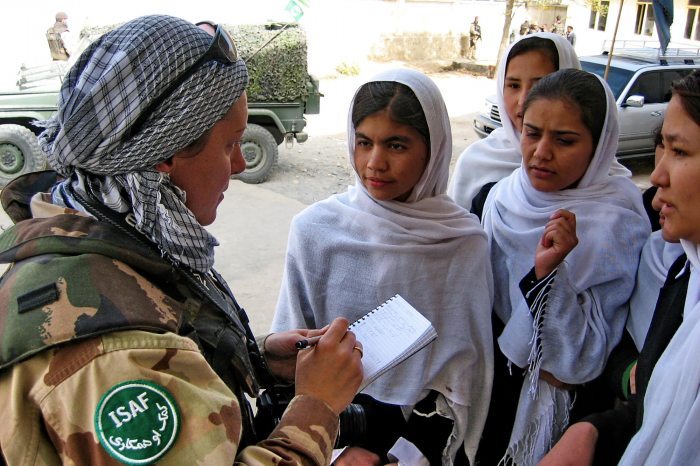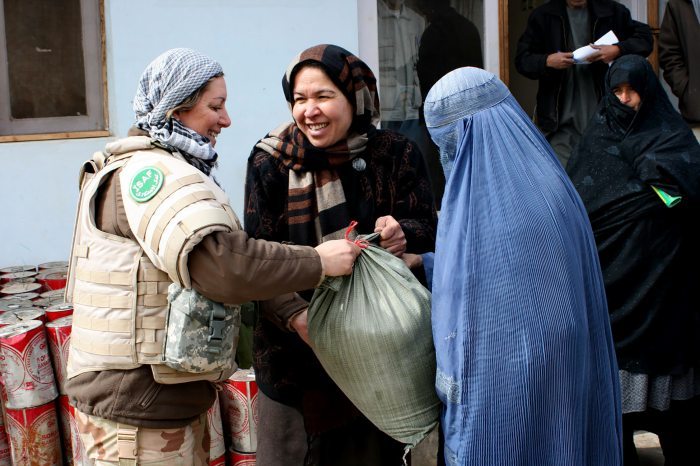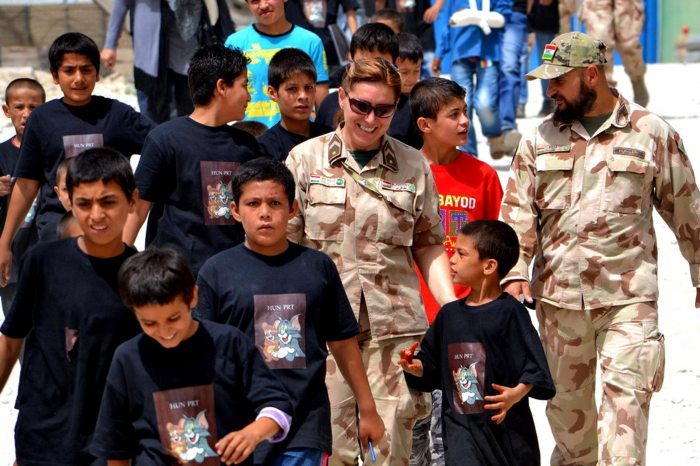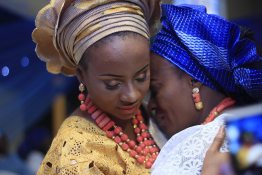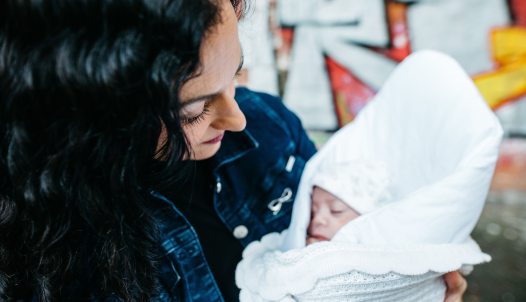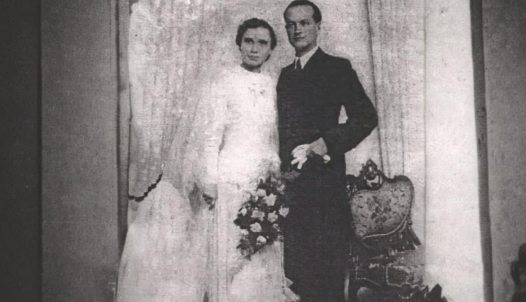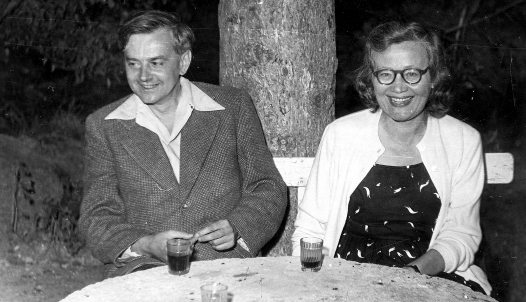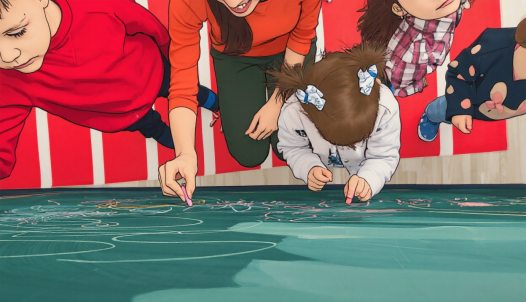"I have never felt fear" - Experiences as a woman on a military mission
First Lieutenant Erika Szabóné Varga started her eighth military mission in Kosovo in October. We talked to her about her previous experiences - mainly in Afghanistan - her feelings and the impact of missions on the human (female) soul.
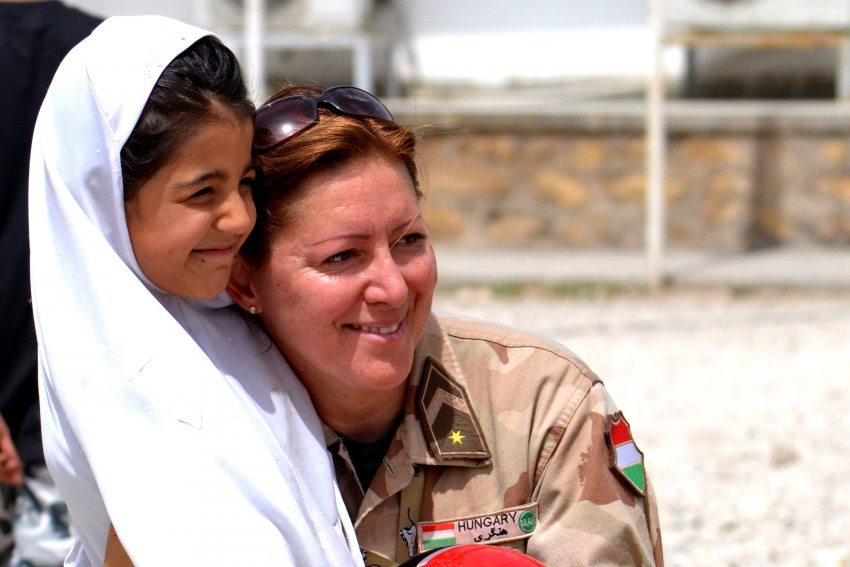
You served twice in Afghanistan, and your photos have been published in a book that is now a documentary. How did you experience that world as a soldier and a woman?
Missionary service is always preceded by a long period of preparation, during which we receive not only physical but also cultural "training". It is very important to be aware of the basic customs and rules that apply in the area where you will be working, because as a soldier, your life may depend on it. I first worked in Afghanistan as a third shift in the Baglan Province Reconstruction Team. After Bosnia, Kosovo and the Sinai peninsula, I thought I had a pretty good understanding of the Islamic world, but Afghanistan was different from anything I had ever seen. The poverty I saw was shocking, especially the plight of the children. My first mission was in the winter, it was 22 degrees Celsius below zero, but there were little children walking barefoot in rubber slippers in the snow. They could go to school mostly only in the summer and studied in tents, but in the villages girls were not really allowed to study. The plight of women was also heartbreaking, especially to see them treated as objects. This was not so common in Egypt.
How to adapt to a culture so different from our own?
You had to watch every gesture, every movement you made. For example, we didn't wave with our left hand, we didn't touch anyone or anything with it, because it was used for cleaning. The male soldiers avoided eye contact with the local women, with whom only we female soldiers were allowed to have contact. Shoes were not allowed in the house, so we always told them that, contrary to local custom, we were not allowed to take our boots off for safety reasons, and not to take this as an insult. We also learnt conversation techniques, one of the basic rules of which is not to get to the point at the beginning of a conversation, but to lead it off with a warm-up conversation, mainly about the weather, the road or other current affairs. The only way to start implementing a plan was to convince the village imam. What the religious leader agreed to, the people accepted. Sometimes we had to argue at length for the introduction of electricity.
We had to understand that religiosity is so deeply rooted in them that it cannot be overcome by reason. The same applied to the treatment of women.
We could help the women if they asked, but we had to accept the male-female relationship system. This was determined by the fact that, outside the family, men and women hardly ever met. These are facts that also make the integration of newcomers to Europe very difficult. In Afghanistan, I used to cover my hair with a scarf under my helmet, so that if we went somewhere and took off our helmets, they could see that I respected their customs. This attitude was typical of the whole Hungarian contingent and was highly appreciated by the locals.
What was it like working with Afghans?
The trust of the locals is hard to win. In the local newspaper, we published weekly articles about Hungary, Hungarian inventors, artists, so that they could place us and distinguish us from the military units of other nations. We also published translations of poetry, as the Afghans, like other Eastern peoples, are an oral culture, and they are very fond of poetry, the emotional imagery appeals to them. One hour a week on the radio, on the programme "Hungarian Minutes", we also reported on the activities we were doing and the most important news and information about them.
What was your task?
I was a spokesperson in my first mission to Afghanistan, and I knew even before I left that, in addition to our work, I had to introduce the Afghans to Hungary as much as possible, which I could only do if I gained as much direct experience and got to know them as well as possible.
The fact that it was the female soldiers' job to interact with women helped me a lot, as it opened up a hidden world.
In our camp we had a CIMIK house (short for civil-military cooperation) where locals could come to share their experiences and requests. Many women also came to us with various problems. After the screening, they would not take their burkas back after entering the house, even though we were working with Afghan male interpreters. They took their faces, which showed that they felt safe. During my second mission, I was also responsible for liaising with the local women's association.
What activities would you highlight?
Our mission was in our name: Provincial Reconstruction Team. Baglan Province had a five-year development plan that was developed by local leaders, with health, education and infrastructure development as priorities. We have sought to ensure that our activities are in line with and support the plans of the local people. We worked with local entrepreneurs, counted on their local knowledge, their expertise, wanted to emphasise that they were building their own future, and that of course meant jobs. Kindergartens, schools, roads were built this way. We had more of an advisory role and, of course, we contributed to the funding. The villages did not have water supply or adequate stone buildings for public institutions. We tried to help that with the so-called 'pipeline' project. We did this together with the Germans: we drilled wells and built water pipelines to villages where people - often children - would walk 5-6 kilometres on foot, leading donkeys harnessed with waterskins, to provide water for the family.
What direction did you feel the country was moving while you were serving there?
I saw only a micro-environment of a vast country, and even within the province there were so-called "white spots", high mountain areas that were inaccessible even by car. We were camped in Pol-e Homri, in the centre of Baglan province, but of course we were surrounded by locals from different areas. It was not at all predictable that this period would end in reversal. The situation was difficult in the countryside, but in Pol-e Homri there were girls students at the agricultural college. In the cities there was no problem.
I interviewed a lot of girls, all of whom dreamed of becoming educated people, for example, they wanted to become a veterinarian or a teacher. It is painful to know that these dreams may have been shattered forever for them as a result of the summer takeover.
I can’t forget their sparkling eyes and enthusiasm.
So in your experience, there are similarities but also marked differences in the Islamic world - depending on the country and even the region. What determines your behaviour, the local culture or your current position?
The basis is culture, and it is in culture that we need to develop an attitude that inspires respect, but also fosters relationship-building. We go there to help, not to change the local people. A good point of comparison is Ramadan, which I have experienced in several places. In Egypt, too, there was a deep religiousness, and we were very careful about how we dreassed even on days off, even inside the camp during the fasting month. The locals avoided all contact during that period, I would describe them as turning inwards. In Afghanistan, however, the state of alert had to be raised, too, because fasting and the struggle for Islam and independence were intertwined in their history, and attacks on foreigners became more frequent during this period.
Was there a situation in any of your missions where you were afraid?
I never felt fear. Just the knowledge that you have to be vigilant, and that it's a huge responsibility, but if I didn't want to do it, I wouldn't do it. There are situations and images that are burned into my memory. One of them was when a mass grave was excavated in Bosnia in 1996, next to a bridge opening.
I could see the human remains, and there was a suffocating stench in the air. Maybe it was then, when I was very young, that I understood what our profession was all about, but I never wanted to do anything else.
No two missions are the same, even in the same place, because the conditions, circumstances and colleagues are always different. The most important thing is that we represent Hungary, we are Hungarian soldiers, we have to work as one.
How do you deal with stress and intermittent but long absences?
The processing of experiences also varies from one life stage to another. When we are in the field, it is very important to have a team spirit, a leader whom I respect and trust. Evening chats with colleagues, a good roommate with whome we look out for each other. Photography is also very important, which is both a hobby and part of my job. It distances and approaches at the same time, as we see everything differently through the lens. We examine the gaze, but at the same time, looking at the image helps us to understand the situation itself, to reflect and process what we see. It has depth and sharpness. I like spontaneous images, catching the movements, gestures, when you can almost see the thoughts. To be present in the moment, free from preconceptions, criticism... You can tell a lot by the way a soldier is looked at.
How much does a mission like this wear on you?
It is very important to feel welcome at home. I feel lucky because my parents have supported me from the beginning and my husband is also a soldier who knows exactly what it means to be a soldier.
When I read his message in the morning, I know that he is with me in spirit every moment. But I also know, as he has, too, served in several military missions, that it is always harder for those who stay at home.
Even now, as we are talking, you've got a packed suitcase waiting for you as you are preparing to head to Kosovo for the third time. What are you taking with you besides your equipment?
I am not bringing any civilian clothes, I will work six days a week. I'm taking photos that I usually hang on the wall next to my bed, a mug I just got from a dear friend, and a few other personal items that make the accommodation my home. I have a lot of enthusiasm! Over the past decades, I've had adventures and experiences, worlds that have opened up to me, all of which connect me to the military profession. I like challenges, I like to set goals for myself, to test myself to see if I can cope with new situations, both professionally and as a person. I am constantly raising the bar, I have always managed to jump over it, and I hope to do so again this time.
The photos were provided by First Lieutenant Erika Szabóné Varga.
